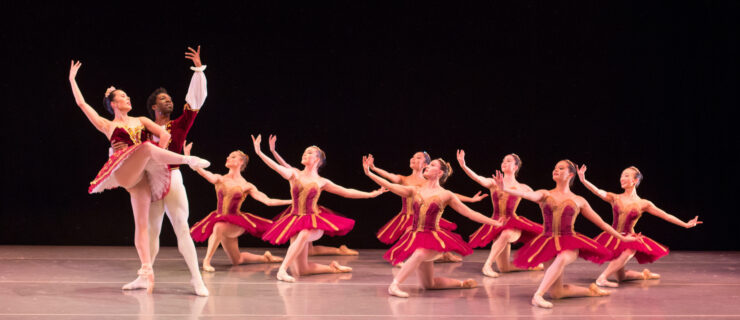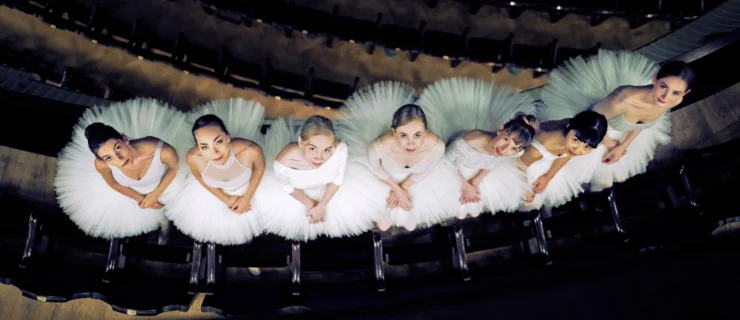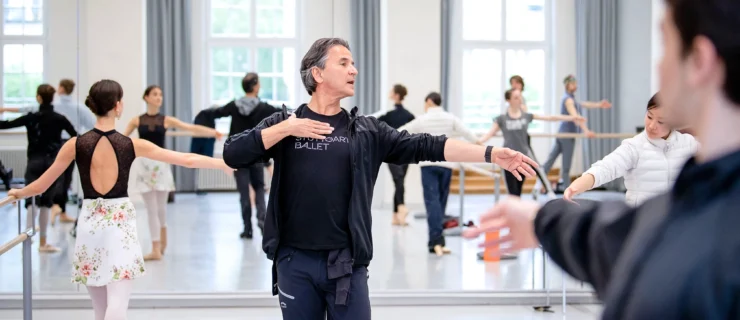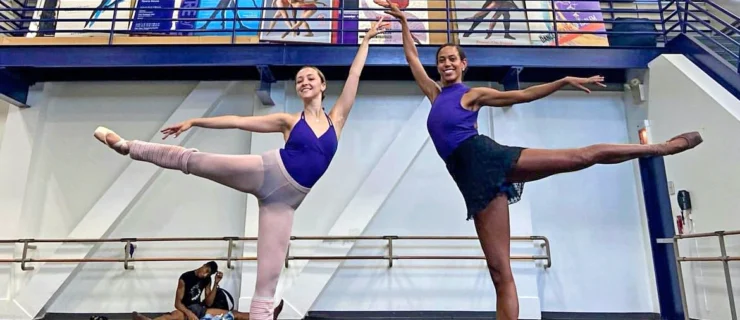Networking Know-How
“Everyone involved in dance is a piece of a big puzzle,” says Samantha Klanac of Aspen Santa Fe Ballet. “The more people you can establish a relationship with, the better that puzzle fits together. Obviously, talent is a key factor in landing a job. But the most successful dancers I know are very personable and make an effort beyond just being technically proficient.”
Networking—the cultivation of relationships to help advance one’s career—is practiced in nearly every profession, ballet included. In fact, some dancers argue that it’s almost as valuable as talent in generating new opportunities. Increasing your connections and exposure within the dance community can help you land a job, switch companies or transition to a new career, to name just a few benefits.
Take freelance dancer Drew Jacoby. She arrived in New York City two years ago with few contacts but plenty of ambition. When she learned that choreographer Christopher Wheeldon was founding Morphoses/The Wheeldon Company, she e-mailed him a resumé and a link to her website. Although Wheeldon had never met her, he was impressed enough with what he saw to invite her to take class with him. Afterwards, he offered encouraging words about Jacoby’s prospects for dancing with his company.
But over the next six months, Jacoby e-mailed Wheeldon five times without receiving a response. Just as she was about to abandon hope, her phone rang and she was offered a job with Morphoses. “It’s about being exposed to people and building genuine relationships,” says Jacoby. “The more open you are, the more likely you’re going to open those connections.”
Jacoby isn’t shy about networking. If she wants to make a living as a freelance dancer, she can’t be. “You have to put yourself out there and even contact people out of the blue. I’m not afraid to either not get called back or hear, ‘You’re not right for this.’ ”
Not all dancers are comfortable with networking, however. Accustomed to letting their talent speak for itself, they feel awkward promoting themselves. If the prospect seems daunting, focus on the potential payoff.
When you’re just launching your career, nurture the contacts you’ve made as a student—your teachers, for example, and older students who’ve graduated to professional careers. Ask to meet outside of class to talk about your goals. Be up front: Let them know the type of opportunity you’re seeking. Remember, they have their own network of associates they can contact on your behalf.
Don’t be timid about creating new contacts. Chat with other dancers you meet at open classes—they might be able to recommend you for an opportunity at their company. Introduce yourself to the choreographer after a master class or workshop to let him or her know you enjoy their work.
“I expect dancers to keep in touch—and if this is somewhere they want to be, they will,” says Dwight Rhoden, co-artistic director of Complexions Contemporary Ballet. When Rhoden needed to fill three spots this season due to injury, he called three dancers who’d steadily maintained contact with him.
“You don’t want to bombard someone and become a nuisance,” Rhoden says, “but I certainly think it’s appropriate to let them know that you’re still around and looking for work.”
Rhoden recommends that dancers use e-mail for updates and follow up with face time. “You can post your work on a website and invite someone to see what you’ve done. You can also let them know if you’re performing in the area,” he says. If you want to work with a particular company, “Ask if you can take company class from time to time so you stay on the radar,” Rhoden advises. “Being able to network that way is productive because the director sees you and sees your interest.”
No matter what stage you are at in your career, it can be beneficial to keep ties with dancers from your past. Elizabeth McGrath, a demi-soloist with Ballet West, stays in touch with the teachers and guest teachers at the ballet studio where she trained. “I’m very happy with my job, but I know that, if I wanted to guest or audition somewhere, I could call some of these connections and they would help me with the process.”
You should also view other dancers and teachers you’ve met at open classes, summer intensives and competitions as part of your network. Keep them updated on your progress through social networking sites like Facebook and MySpace, as well as e-mail. Even if these contacts don’t have a direct impact on your career, their camaraderie can provide valuable insight. “I have friends from summer programs who have danced in major companies, smaller companies and in Europe,” Klanac says. “It’s helpful to hear about their experiences so I can reevaluate my own.”
Klanac’s attitude is that all of the contacts she makes—even those not directly tied to dance—could help her in some way. As proof, she points to a member of her company’s board who got her an appointment with a prominent physician when she suffered a back injury.
“It’s a small world, and one relationship bleeds into another. Networking is not something I consciously think about, but it works best when it’s a natural process and a natural relationship. I’ve gotten my job because I’ve been myself. If they want to work with you, they’ll see that.”
A former newspaper reporter, Nicole Peradotto is a longtime arts writer who lives in upstate New York.





